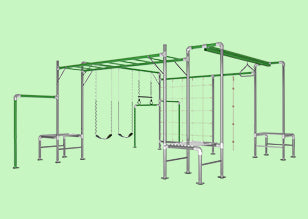The Blog
How Much Vitamin D Do You Need?

Nutrients play an important role in helping children grow and stay healthy, one of the most important being vitamin D. Vitamin D is crucial in developing bone and muscle health as well as strengthening the immune system to ward off illnesses. Adults as well as children need vitamin D daily, deficiency can lead to serious health problems and cause kids to experience delayed motor development and muscle weakness. Vitamin D comes naturally in two forms; sunlight and some foods, vitamin D can also be taken in supplement form to help kids get their daily recommended intake.
Health Benefits
Receiving a sufficient amount of vitamin D is important, especially for children. Vitamin D helps the body absorb and retain calcium for critical bone development, without it the body is unable to absorb and regulate the body's calcium intake. Vitamin D also plays a vital role in strengthening the immune system and protecting against viral respiratory infection. Soon to be parents also play an important role in providing vitamin D whilst pregnant, studies have linked vitamin D to lowering the risk of premature birth. Whilst bone strength is the most significant benefit of vitamin D, the vitamin is also shown to support nervous system health as well as improve lung and heart health.
How to Get Vitamin D

Food
Only few foods are naturally rich in vitamin D and they most likely aren’t your kids' favourite foods. Foods that contain the most vitamin D are fish, eggs, liver and mushrooms. Getting children to eat a can of tuna or a serving of salmon can be a tackling task especially if you have a picky eater on your hands. Fortified foods like milk, yogurt, cereal and orange juice may be an easier means of getting children to consume their recommended daily vitamin D intake.
Sunlight
Sunlight is another great source of vitamin D for children, between 10 to 20 minutes a day on bare skin is all children need. Although the sunlight has many benefits it can also be very harsh on young skin so remember to be cautious when spending time in the sun. Getting children outdoors and playing is especially easy when they have access to fun play equipment. Cubby houses, particularly elevated cubby houses are a great way to get children playing outdoors, whilst having the option of retreating under the cubby house to get some shade breaks. During summer, picnic tables and sand and water tables are perfect for longer play dates outdoors, the umbrella keeps children out of direct sunlight whilst still receiving some much-needed vitamin D. Optional indoor or outdoor play equipment such as play kitchens and toddler play sets encourage kids to play outdoors then move indoors before risking excessive sun exposure.
Vitamin Supplements
If children aren't getting enough vitamin D, there are kid friendly supplements that can be taken to give little ones the vitamin D boost they need. These vitamins can be found in chewable options that also taste good, making it that much easier for children to take them. Vitamin D drops can be a great way to help breast-fed infants who don’t take supplemental formula receive their intake of vitamin D, as breastmilk doesn’t naturally supply vitamin D. Multivitamins containing vitamin D may be necessary if you live in a cloudy climate that doesn't receive a lot of sunlight or if your little one doesn’t spend much time outdoors.
How Much Do You Need?

The amount of vitamin D your child needs will depend on their age. Infants between 0-12 months old are suggested to receive 400 IU of vitamin D daily, this can be provided through formula milk or vitamin D liquid for breast-fed babies. As children grow so does their bones, from 1 year old children will need to increase their intake to 600 IU, this is the equivalent of 4 cups of milk or 2 cans of tuna. At this age children can receive vitamin D from their food as well as time spent outside in the sunlight. Parents should plan meals that are high in vitamin D, fish, red meat and mushrooms contain the highest amount of natural vitamin D. Kids who may need more vitamin D are those with certain medical problems including obesity, celiac disease or cystic fibrosis as well as children healing from bone surgery or taking medication that interferes with the absorption of vitamin D. Children also need enough calcium in their diet, as calcium works hand and hand with vitamin D to help the body absorb nutrients from food.
Not getting enough vitamin D can cause harm to the natural development of bones, vitamin D deficiency can lead to soft bones causing a condition called rickets. There are also risks if kids take in too much vitamin D which can commonly occur through the over consumption of vitamin D supplements, this can increase children's chance of developing kidney stones.
Conclusion
You may already monitor your child's vitamin D intake and make conscious efforts to ensure they are receiving enough. Or this may be the first time you have even thought about vitamin D and you’re biting your fingernails wondering if your child is receiving enough. For those parents the good news is that it's very easy for kids to get access to vitamin D and chances is if you have a little one that loves playing outdoors and eats the foods listed above then they’re probably already getting all the vitamin D they need. Good bone health continues to be the most significant benefit of vitamin D, with consistent intake kids are sure to develop strong and healthy bones.
Always seek the guidance of your doctor or other qualified health professional with any questions you may have regarding your health, your children's health or a medical condition. Never disregard the advice of a medical professional, or delay in seeking it because of something you have read on this Website.
Leave a comment







 Backyard Discovery
Backyard Discovery Classic World Toys
Classic World Toys TP Toys
TP Toys Starplay
Starplay Progear Bikes
Progear Bikes Lil' Monkey
Lil' Monkey Junior Jungle
Junior Jungle HyperJump Trampolines
HyperJump Trampolines














